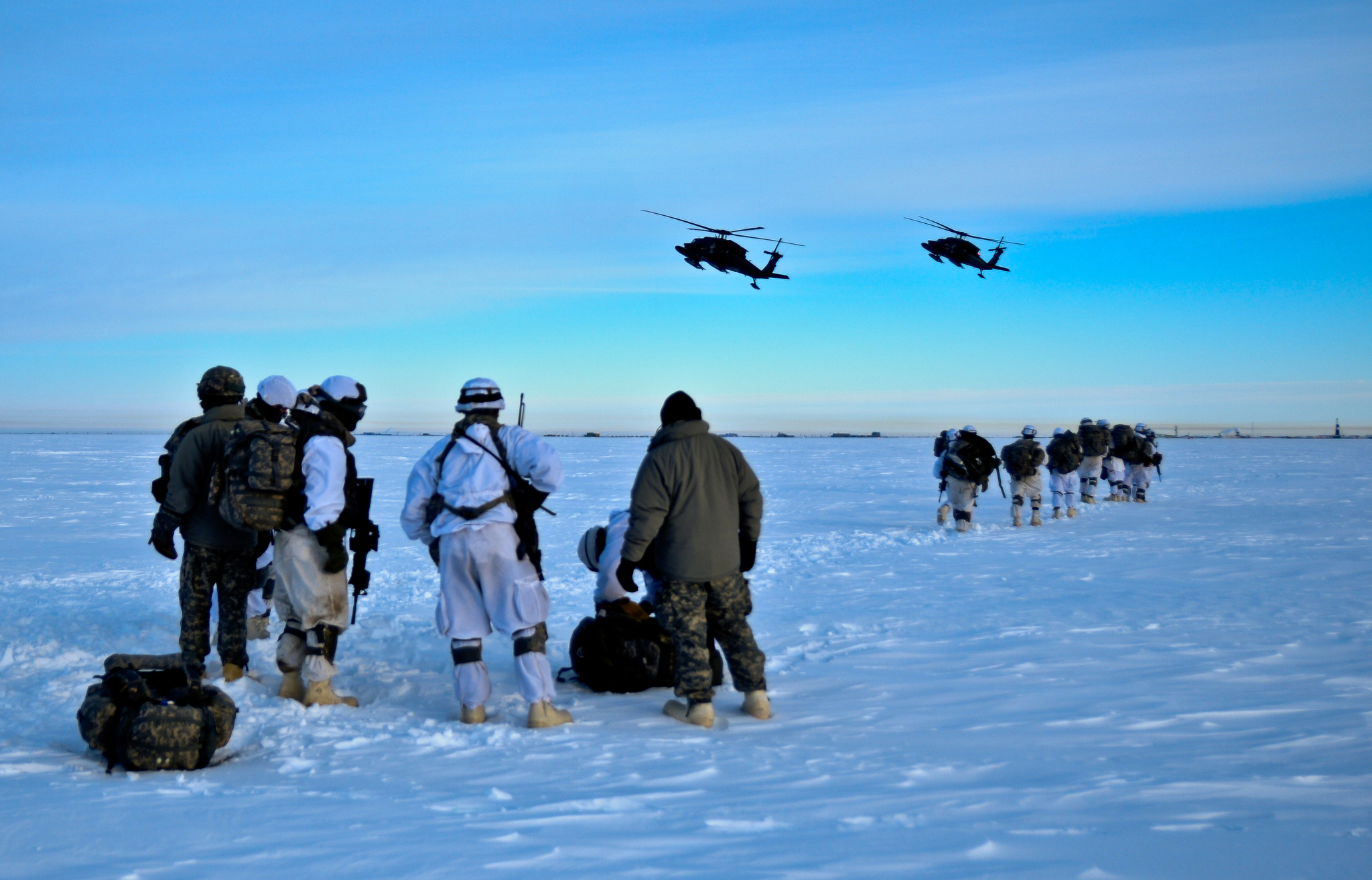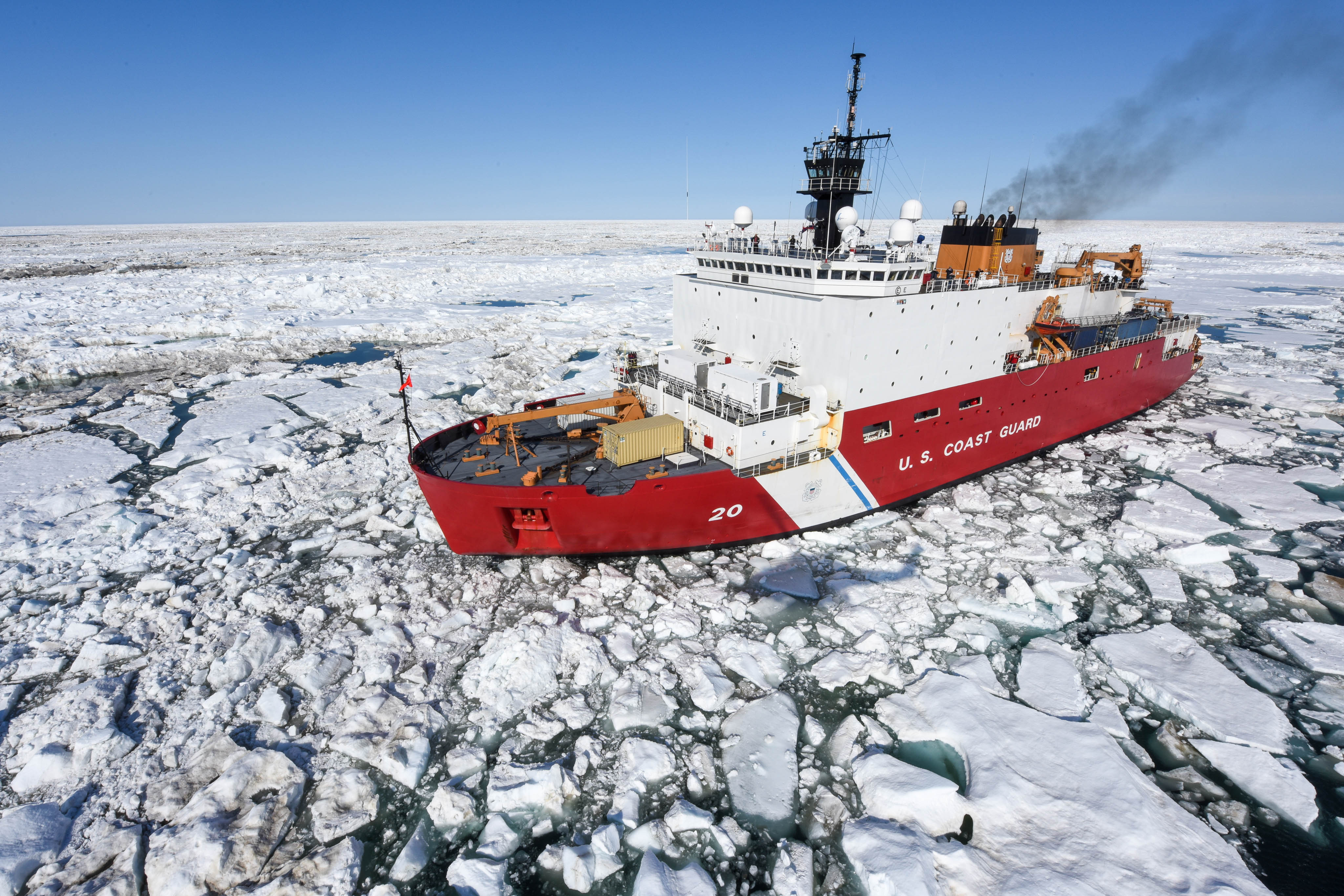Growing security concerns make the Arctic loom larger in Washington
As the Arctic opens to more economic activity – and countries like Russia and China seek to fill the void – Washington officials worry about the lack of U.S. preparedness.

Concerns over a shifting security situation could finally be earning the Arctic more attention among Washington insiders, if a series of recent congressional hearings are an indication.
“In the past 10 years, we have seen the Russians move dramatically, and actually in the past year even more so,” said Alaska Sen. Lisa Murkowski during a May budget appropriations hearing. “And yet, our U.S. Arctic strategy has yet to evolve to this changing dynamic.”
Russia, said Murkowski, is positioning itself to control the Arctic — from its resources to its sea lanes — which would have lasting effects on global security.
“I am reluctantly coming to the impression that the Department of Defense does not have a coherent vision for addressing America’s defense interests in the changing Arctic,” Murkowski said.
Murkowski has raised the question of Arctic security before; she’s long supported the construction of new icebreakers in previous appropriations meetings.
But this time, Department of Defense officials seemed to share her concerns.
[‘America’s got to up its game in the Arctic,’ says Defense Secretary Mattis]
Secretary of Defense James Mattis highlighted the importance of having NATO allies on the Arctic Council. “We are in effect working in a coalition of sorts right now,” he said.
General Joseph Dunford, chairman of the joint chiefs of staff, explained that “the Arctic is fully included in our global campaign plan for Russia” in terms of security. He added that the United States is particularly attuned to Russia’s military posturing in the Arctic and its threats to national and global security.
These statements hint at a changing perspective of Arctic security within the Beltway.
While experts agree that the Arctic is currently one of the most secure regions in the world, they also point to rapid changes opening up the region to new or increased — and potentially destabilizing — influences.
China announced this week that it is developing nuclear-powered icebreakers capable of traveling long distances; such a move is in line with its recently unveiled strategy for a polar Silk Road.
Russia has made more overt military moves, bolstering its submarine fleet and arming its icebreakers with cruise missiles capable of targeting both vessels and land, including ports and air strips.

Traffic in the Bering Strait has more than doubled in the past 10 years, said Heather Conley, senior vice president for Europe, Eurasia, and the Arctic at the Center for Strategic and International Studies in Washington. This rise in Arctic activity may bring security concerns as well, Conley testified before the U.S. House of Representatives subcommittee on the Coast Guard and maritime transportation on June 7.
“It is clear the United States needs a proactive, long-term plan,” she said, particularly when it comes to protecting the Alaska coastline; patrolling U.S. territorial waters in the North Pacific and in the Bering, Chukchi, and Beaufort seas; and enforcing the 200-mile exclusive economic zone off the coast of Alaska, as well as the U.S. maritime demarcation border with Russia.
“These tasks are critical to the future prosperity, safety, and national security of the United States,” she said.
Duncan Hunter (R-CA), chairman of the committee, seemed to share her concerns. He asked what he called a “trick question” of Adm. Charles Ray, vice commandant of the United States Coast Guard. “How would you align our Arctic strategy with what General Mattis has talked about the Arctic in our National Defense Strategy?”
It was a trick question, Hunter later explained, because the U.S. National Defense Strategy doesn’t mention the Arctic at all. He called the oversight “a huge lapse.”
“General Mattis talked about everywhere on earth, basically, except for the Arctic,” Hunter said. “It seems really myopic.”
John Garamendi (D-CA) echoed his concerns. The federal government, he said, “appears to have been far too complacent, if not negligent, in establishing a solid foothold for the bona fide federal presence” in the Arctic.
The committee, he added, was prepared to develop an Arctic strategy “since the whole of government has ignored it.”
At the hearing, Hunter and Garamendi asked the Coast Guard and the Navy to draft a joint strategy to present to the committee in the next few months addressing these gaps in the U.S. national defense strategy.
Adm. Ray acknowledged the lack of a written strategy, but he pointed to the Coast Guard’s ongoing work in the region—and highlighted the agency’s role in mitigating security concerns in a changing environment.
“We’re not alone up there,” Ray said.
“Our two nearest peer competitors, Russia and China, have already both declared the Arctic a strategic priority,” he said, “and they continue to aggressively develop the capability, capacity and expertise to exert influence and seize opportunities in the region.”

The outgoing commandant of the Coast Guard, Adm. Paul Zukunft, recently said that the Arctic had become the highest priority for the military branch.
Russia, Ray pointed out, controls more than 50 percent of the Arctic coastline, and the region is important economically for the country.
“But what they’re doing goes way beyond economic activity,” Ray said. “We observe that and are aware of that.”
The Arctic isn’t only an economic priority for countries like Russia and China, experts like Heather Conley say. It’s also important militarily.
What concerns Conley most, she said, is that “the United States is placing one very big bet that the Arctic will remain of limited strategic value.” The current U.S. approach to security is restricted, she pointed out, to a largely seasonal approach. The U.S. plans for the future only as far as the next budget cycle, she said; on the contrary, “Russia and China view the Arctic over the next half-century.”
Rep. Garamendi seems similarly alarmed by the lack of long-term military planning in the Arctic.
“We cannot afford to ignore what is unfolding in the Arctic. As a maritime power and Arctic state, the United States must embrace this challenge,” he said.
“For if not, rest assured, other nation-states, friend and foe alike, will fill the vacuum.”
On Tuesday, General James Mattis, the secretary of defense, highlighted these same concerns. Speaking to reporters at Alaska’s Eielson Air Force Base, he discussed the ways in which a changing Arctic will lead to increased international interest — and potential security concerns. He also admitted that the United States has lagged behind many of its counterparts in the region.
“Certainly America’s got to up its game in the Arctic,” Mattis said. “There’s no doubt about that.”